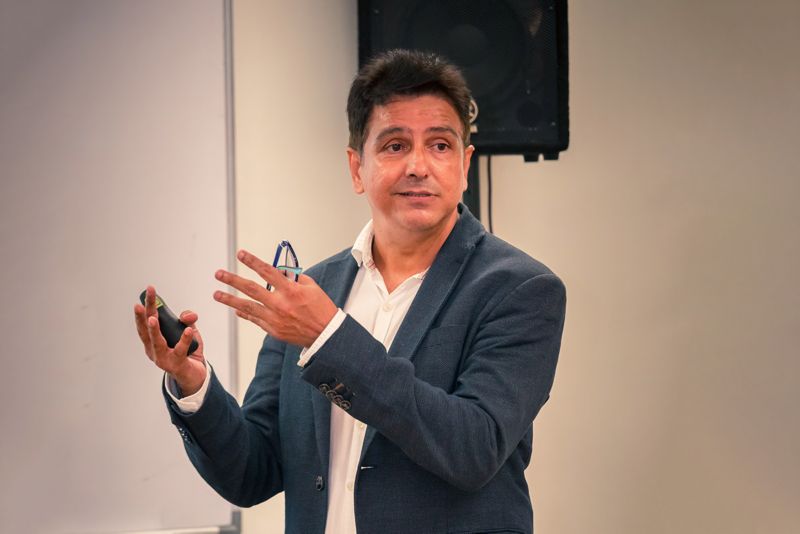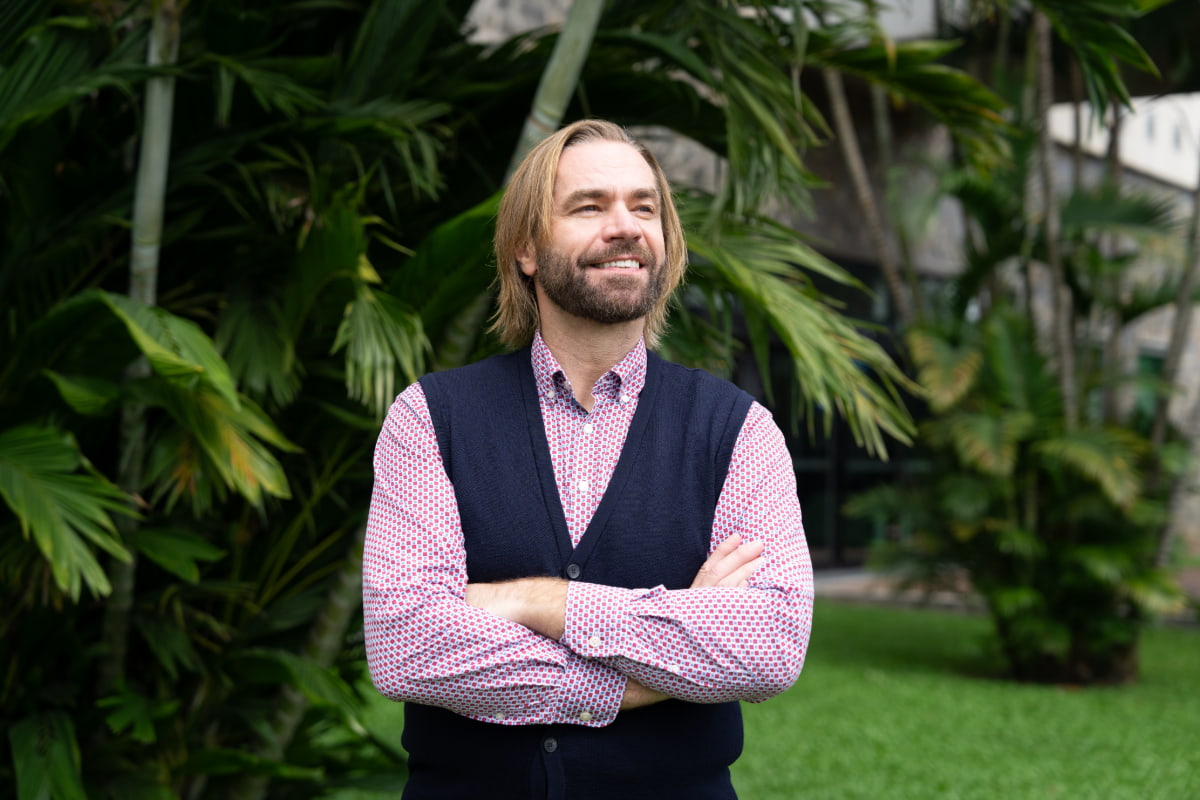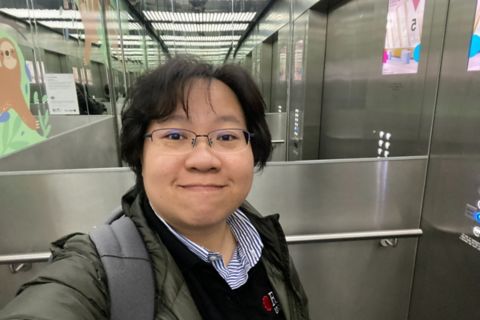Teaching strategy through uncertainty
Dr Sandhu’s classroom isn’t built around lectures; it’s built around decisions. At the core of his teaching practice is challenging students to take on strategic problems drawn from real-world business. But making recommendations isn’t enough. Students must also be able to assess, argue and defend their decisions. His goal isn’t for students to memorise frameworks, but to use them under pressure. “It’s not about whether students can repeat a framework,” he says. “It’s about whether they can apply it thoughtfully when the situation is unclear.”
Bringing the real world into the classroom
A key way he does this is by bringing the real world into the classroom.
“Simulations and guest speakers help bring the material to life and keep the learning grounded in reality,” he says.
For example, in one class, students analyse why a Malaysian media company failed to break into the Indonesian market. In another, they role-play as executives planning the international expansion of a fictional smartphone brand, weighing institutional risk, cultural fit and competitive positioning. These exercises aren’t about finding the right answer. Instead, they’re about developing judgment and strategic clarity in unfamiliar territory.
Guest speakers are also invited join Dr Sandhu’s classes, adding practical insight from leaders managing businesses across Southeast Asia.
Another key way Dr Sandhu exposes his students to the real-world pressures of international business is by asking students to pitch strategies. This format mirrors real-world consulting and executive briefings, with clarity, structure and critical thinking at the centre.
“By integrating real-world experiences, encouraging curiosity and teaching students how to learn and lead in uncertain contexts, I aim to develop graduates who are not only career-ready, but also capable of shaping the future with confidence and purpose,” he says.





